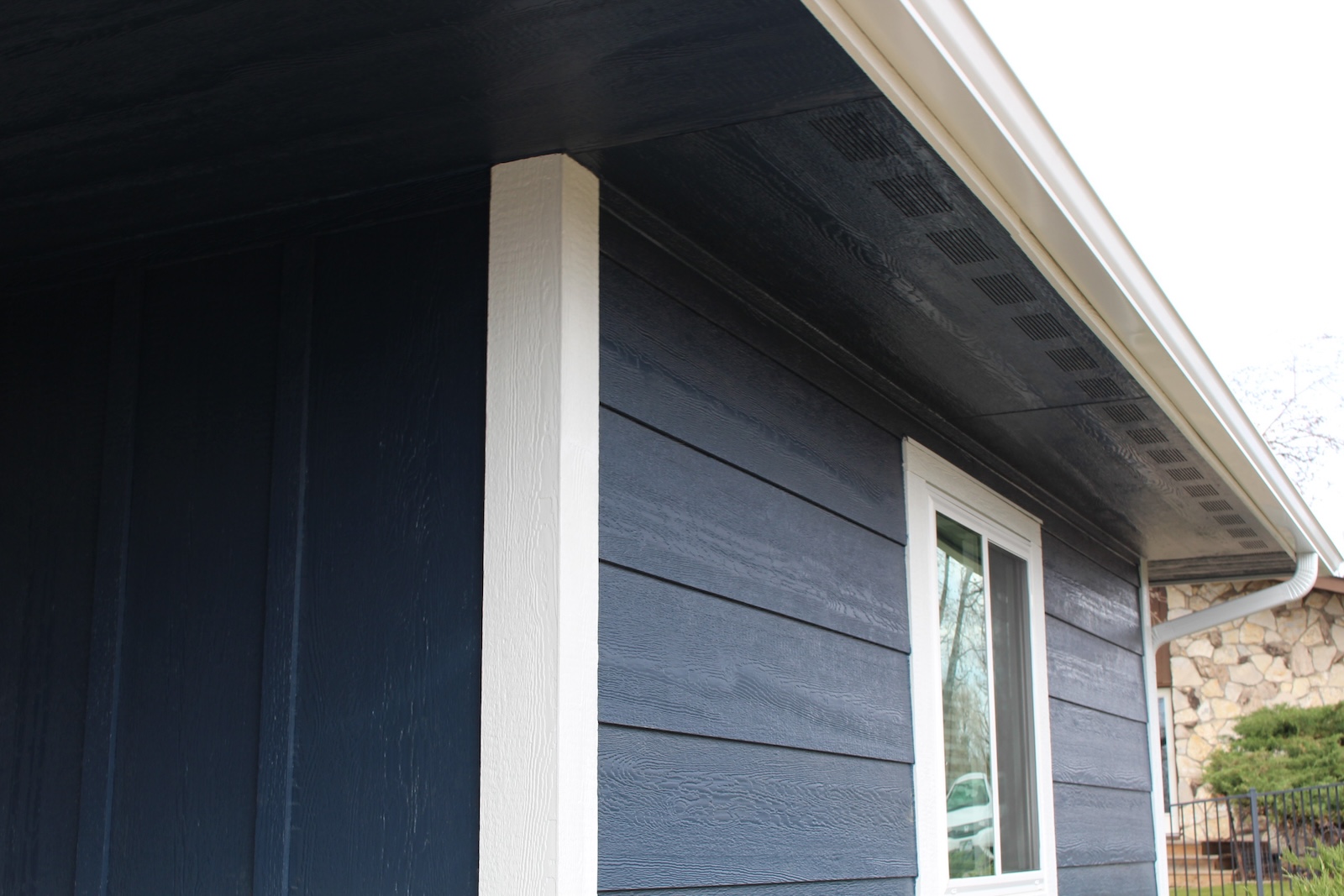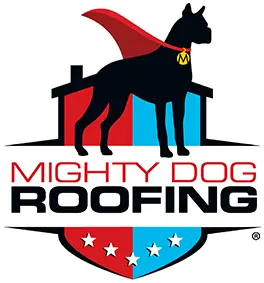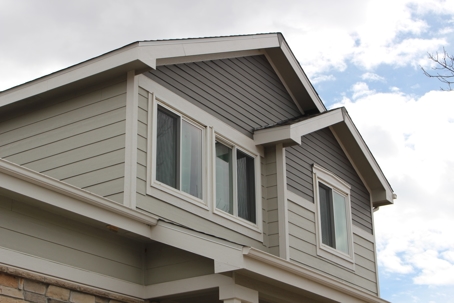How Long Does Vinyl Siding Last? Maintenance Tips to Extend Its Lifespan
Vinyl siding is one of the most popular choices for homeowners in Northern Colorado and across the country—and for good reason. It’s affordable, attractive, and durable. But just how long can you expect vinyl siding to last? And what can you do to maximize its lifespan?
At Mighty Dog Roofing of Northern Colorado, we believe in helping homeowners make the most of their investments. In this guide, we’ll break down the average lifespan of vinyl siding, the factors that affect it, how it compares to other siding materials, and the maintenance steps that can help you keep your home protected and looking great for decades.
How Long Does Vinyl Siding Last?
On average, vinyl siding lasts between 20 to 40 years, depending on the quality of the material, installation, and how well it’s maintained. High-quality vinyl installed by a professional contractor, like Mighty Dog Roofing, and maintained properly can easily reach the upper end of that range or more.
Vinyl siding is engineered to resist moisture, pests, and fading, making it a smart, long-lasting solution for homes in the varying climate of Northern Colorado. With advancements in technology and manufacturing, modern vinyl siding is more resilient and visually appealing than ever before.
Factors That Affect Vinyl Siding Lifespan
While vinyl siding is built to last, several factors can influence just how long it holds up:
Climate and Weather Exposure: Colorado’s fluctuating temperatures, intense sun, hail, and high winds can take a toll on any exterior material. Vinyl’s flexibility allows it to expand and contract with temperature changes, but prolonged exposure to UV rays or storm damage can wear it down.
Installation Quality: Poor installation can lead to gaps, warping, or water infiltration that shortens the lifespan of siding. Always hire certified professionals to ensure the job is done right.
Material Grade: Not all vinyl siding is created equal. Premium-grade vinyl is thicker, more impact-resistant, and offers better insulation than budget alternatives.
Maintenance Habits: Routine cleaning and inspections help prevent damage and prolong the life of your siding. Neglecting even minor issues can lead to premature replacement.

Maintenance Tips to Extend the Life of Your Vinyl Siding
Want to make sure your siding lasts as long as possible? Follow these simple maintenance tips:
1. Clean It Annually
Use a soft-bristle brush or a pressure washer on a low setting to clean off dirt, mildew, and debris. A mix of water and mild detergent works great. Avoid harsh chemicals that can damage the finish.
2. Inspect After Storms
After hail, wind, or heavy snow, inspect your siding for cracks, dents, or loose panels. Early detection prevents bigger problems down the road.
3. Trim Landscaping
Keep trees, shrubs, and bushes trimmed back so they don’t rub or trap moisture against the siding. Overgrown vegetation can also reduce airflow and promote mold growth.
4. Avoid Direct Heat Sources
Grills, fire pits, and other heat sources placed too close to vinyl siding can cause warping or melting. Always maintain a safe distance.
5. Address Repairs Promptly
If you notice damage, don’t wait. Call a professional to assess and repair the area before it worsens. Small issues can escalate quickly if left untreated.
6. Check for Moisture Issues
Inspect caulking around windows, doors, and other penetrations. Look for signs of moisture getting behind the panels, which can lead to rot or mold inside the walls.
Seasonal Maintenance Tips
Different seasons require different strategies to care for your vinyl siding:
Spring & Summer:
Power wash to remove winter grime and pollen buildup.
Inspect for any damage caused by ice or snow.
Paint or replace trim for a fresh look.
Fall & Winter:
Clear leaves and debris from gutters to prevent water overflow.
Ensure siding panels are secure before heavy snow arrives.
Look for gaps where cold air or moisture can enter.
How Vinyl Siding Compares to Other Siding Materials
If you're considering your siding options, here's how vinyl compares to some other common materials:
James Hardie Fiber Cement: More expensive but offers greater durability, fire resistance, and a higher-end appearance. Often chosen for its longevity and lower long-term maintenance needs.
Wood Siding: Natural and beautiful but prone to rot, pests, and high maintenance. Needs regular painting and sealing.
Aluminum Siding: Durable and fire-resistant, but can dent easily and fade over time.
Vinyl remains a cost-effective, low-maintenance option that works well for many homes—especially when installed and maintained properly.
Environmental Impact and Energy Efficiency
Vinyl siding has improved in terms of eco-friendliness. Many products today are manufactured using recyclable materials and are themselves recyclable at end-of-life. Some insulated vinyl siding options also improve your home’s energy efficiency by reducing thermal bridging and heat loss.
Properly installed insulated vinyl siding can help lower your energy bills, especially during Colorado’s cold winters and hot summers.
FAQs About Vinyl Siding Lifespan
Q: Can vinyl siding be painted if it fades?
Yes, but it requires special paint designed for vinyl. However, repainting often means it's nearing the end of its optimal appearance.
Q: Will vinyl siding melt in extreme heat?
It can warp if exposed to extreme heat or reflective window glare. Placement of grills or fire pits too close can also cause melting.
Q: How do I know if my siding needs replacing or just repairs?
If the damage is isolated (like a single cracked panel), repairs may suffice. Widespread fading, warping, or moisture problems typically indicate it's time for a full replacement.

Signs It Might Be Time to Replace Your Vinyl Siding
Even with good care, there comes a time when siding needs to be replaced. Look out for these warning signs:
Cracks, holes, or warping
Faded or chalky appearance
Frequent need for repairs
Increased energy bills
Moisture or mold inside your walls
Loose or missing panels
Replacing old siding not only protects your home but also improves its energy efficiency, curb appeal, and overall value.
Trust Mighty Dog Roofing for Siding Replacement and Repairs
If your vinyl siding is showing its age or you want to explore longer-lasting alternatives like James Hardie fiber cement, our team is here to help. At Mighty Dog Roofing of Northern Colorado, we offer professional siding assessments, repairs, and installations backed by our commitment to craftsmanship and integrity.
Give us a call at (970) 847-2236 or stop by our office at 507 Cowan St Suite B, Fort Collins, CO 80524. You can also schedule a consultation online at mightydogroofing.com/northern-colorado.
Let us help you keep your home looking great and performing even better for decades to come—with siding solutions that fit your needs, budget, and style.


